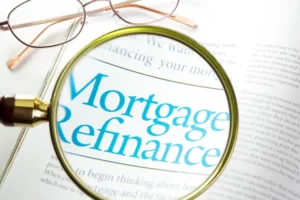You could find yourself in sticker shock when you renew your home loan, with mortgage interest rates at or approaching 14 year highs.
Understanding the process of renewing your mortgage and being prepared to pay higher interest rates in advance will make it easier for you and your mortgage.
Your Payments could rise significantly if interest rates are higher
The prime rate rose from 2.45% to 5.95% at the time of this writing, in 2022. The Bank of Canada sited the need to increase their overnight lending rate so rapidly in order to slow down soaring inflation. With prime increasing, the variable rate mortgage rates have also increased and we have also seen a rise in fixed rates as well.
Beginning in March, the Bank of Canada has raised six times. The overnight lending rate currently stands at 3.75%. As Canada continues to experience high inflation, another increase is possible before the end of the year. This would mean that the Bank of Canada has raised rates 7 out of a possible 8 times in 2022. The Bank meets 8 times every year to discuss the overnight lending rates and whether they should increase them, decrease them, or leave them the same. The overnight lending rates are rates that the banks pay for borrowing money. The Bank of Canada acts as a bank to the Banks. At the end of every business day, the Banks’ balance sheets must balance out. If they have a shortfall then they need to borrow money from the Bank of Canada, and the overnight rate is what they pay in interest.
Between the spring of 2020 and right up until about December of 2021, it was not uncommon to find mortgage rates below 2.2%. At present, both fixed-rate and variable-rate mortgages hover around 6%.
Your monthly payments for a $500,000 mortgage would have been approximately $2,180 if you were to pay a 2% rate on a 25-year amortization schedule. The same mortgage would cost you $3,200 per month at current rates or $12,240 more annually.
Now, if you are in a variable rate mortgage, it’s important to understand what type of variable rate you have, does your payment adjust, or does your payment stay the same and the amount that goes to principal vs interest adjust?
If you are locked in to a fixed term, your payment won’t be going up immediately, but you still need to be paying attention because once you are up for renewal the you could be in store for a significant payment shock. For example, if you are used to making payments of $2,180 and then all of a sudden you have to start making payments of $3,300, and you are on a fixed income, with a growing family that has needs and expenses increase as your children get older, then this could be a significant problem for you.
Can you reach your trigger rate before renewing?
We are speaking specifical to Variable Rate Mortgage Holders right now. You should not be too concerned if you have a fixed-payment variable-rate mortgage, at least when it comes to your payment, because your payments have likely stayed the same and not increased.
However, as prime rises, more of your payment will go towards interest and less towards principal. This could be problematic if you get to the point where your payment stops covering the interest. Your mortgage balance will actually start to rise!
This is referred to as a trigger point. The rate at which your trigger point is hit is referred to as a trigger rate. Your lender should contact you and let you know what the trigger rate and trigger points are. It is your responsibility to contact the lender to find out what your options are. Once your trigger point is hit, then some banks will implement payment controls, and the control of what you can do and how you can do it will be out of your hands. You want to avoid this and keep as much control on your options as possible.
Here are some options you may consider if you are in this situation.
Increase your monthly payments: A higher monthly payment means that you have more money to pay the principal. This will increase your trigger rate.
Prepayments go 100% toward your principal. Making a lump sum payment would also help increase your trigger rate.
Change to a fixed-rate loan: A fixed-rate mortgage will protect you against any future mortgage rate increases but could also change your monthly payments.
Review your mortgage contract carefully. Your trigger rate should be listed in writing. If you still need clarification on the details, contact your lender to ask any questions about your trigger rate or your other mortgage options. You can always reach out to us as well, we are here to help.
You will have to requalify at today’s stress test if you want to change lenders
Your lender will send you a mortgage renewal letter a few weeks to a few months before the end of your mortgage term. It will outline your current mortgage balance and lay out a new offer.
- New interest rates
- Payment Frequency
- The term.
- All applicable charges and fees
It’s a good idea to compare the renewal offers of your current lender with those from other lenders. There may be better deals that could save money. However, if you want to change lenders, you will need to requalify as if you are applying for a new mortgage. Depending on your mortgage contract, you may have to also qualify at the current stress test. Consult with us if you have questions and we can walk you through the numbers.
Accepting the terms of your existing lender’s mortgage renewal will mean you don’t have to worry about requalifying. People who are financially challenged and may need help to qualify for a new lender might be able to accept the renewal offer.
Your lenders are well aware of this and therefore you have to ask yourself, are they really giving you their best options up front? This is why it will serve you well to start the process sooner. We at themortgagespecialist.com start the renewal process with our clients who have fixed term mortgages 14 months prior to their mortgage’s maturity.
A shorter term might be more beneficial
Most Canadians choose a 5-year term, regardless of whether it’s fixed-rate or variable-rate. However, we are currently seeing rates that we have not seen in the last 14 years. One of the implications of rising rates in an inflationary environment is a follow up of recessionary times. If a recession hits, and inflation comes under control, if we can use history as any indicator, this would mean that rates will start to decrease.
Now, there are no guarantees but it might be worth considering a shorter term. When things are volatile the flexibility of shorter term rates have been known to provide benefits and savings. This is another topic but a very important one, mortgage penalties. For most borrowers the penalties and unnecessary fees should be their top concerns – as it is penalties and unnecessary fees that end up costing them dearly.
With a shorter term fixed rate, you will be protected from rising rates in the impeding short term, and maintain the flexibility to pivot with less costs if the market changes in your favor and interest rates start to decrease.
There is still some merit and benefits for variable rate mortgages in an increasing rate environment. The biggest merit is cost certainty. The penalties with variable rate mortgages are standard across the board and can be measured – they amount to 3 months interest.
It’s worth shopping around
Provided re-qualification is not an issue, it is a good idea to compare the rates offered from other lenders and shop around. The information you collect can also be used to negotiate a better deal with your current lender.
Be aware that you may need to pay additional fees before switching lenders. Under most circumstances the new lender picks up the tab on some of these costs, and they also allow you to capitalize some of it on top of the mortgage. It is important to be crystal clear on what the costs are, as it can also help you determine if switching really is right for.
- Transfer fee or discharge from the current lender
- Appraisal fee.
- Removing collateral charge
- There are no setup fees.
Always ask to see if you can get any of the fees above waived. It never hurts to ask.
These are 5 of the most common things you need to be aware of if your mortgage is coming up for renewal in 2023. If you have any questions or would like to dive deeper into your own specific situation, please do not hesitate to reach out to us.



